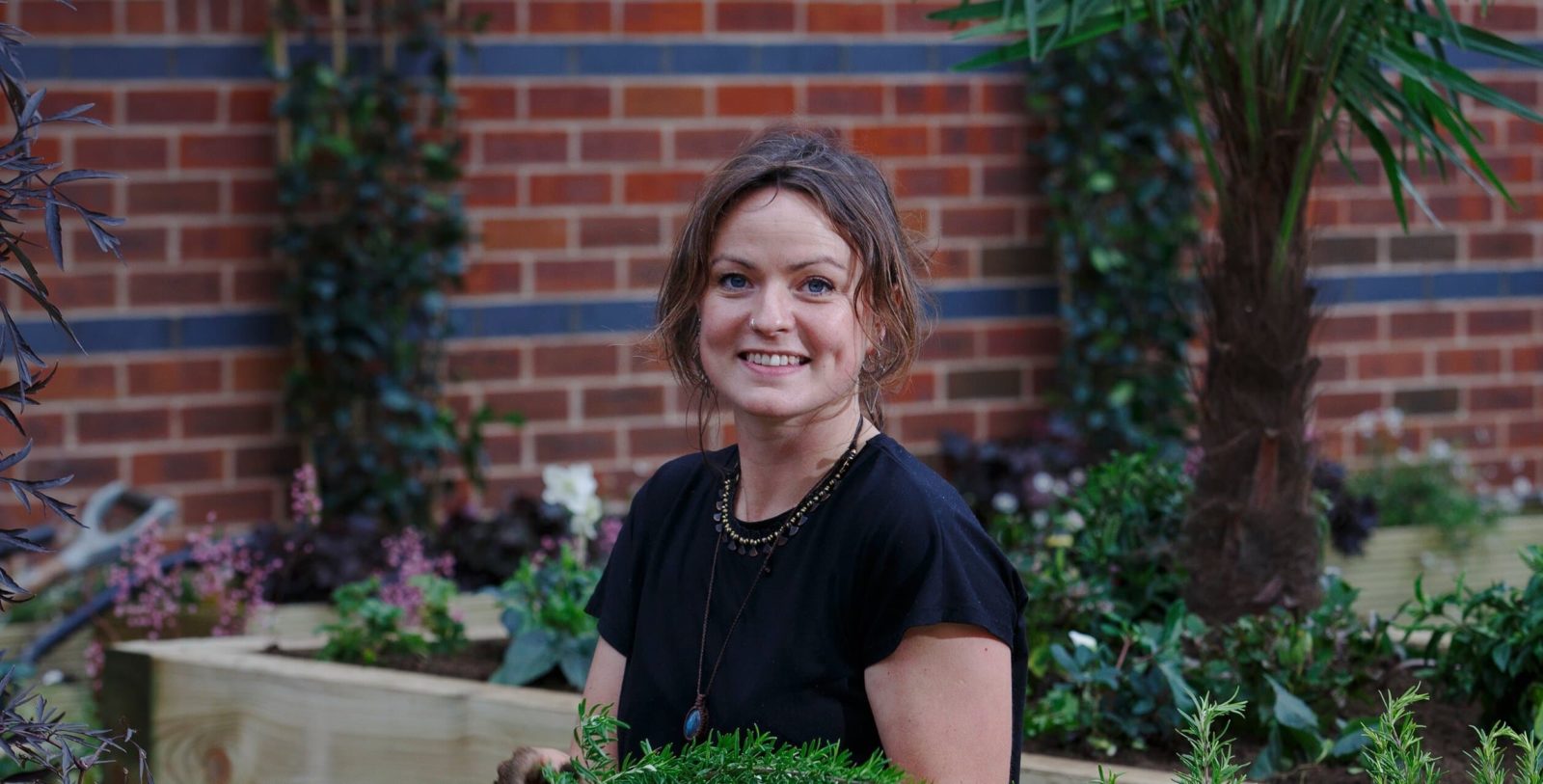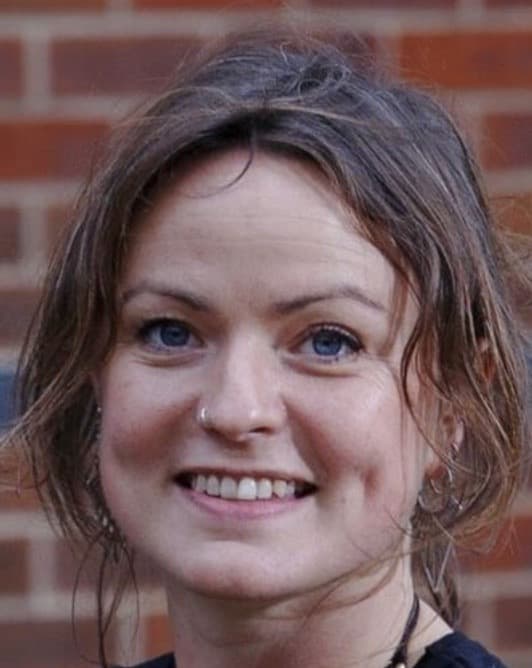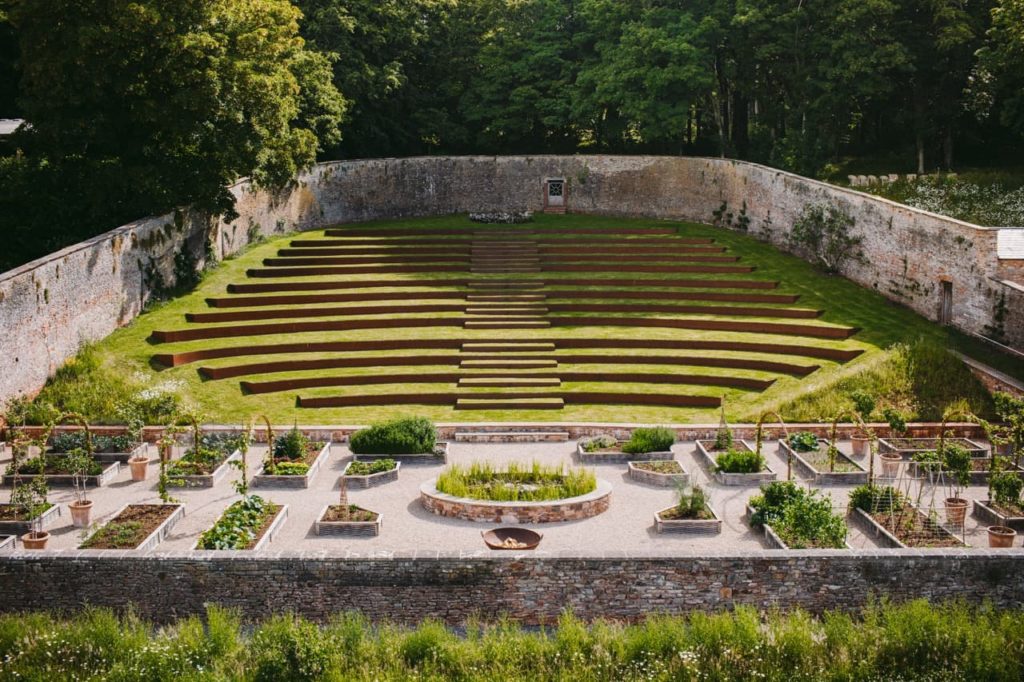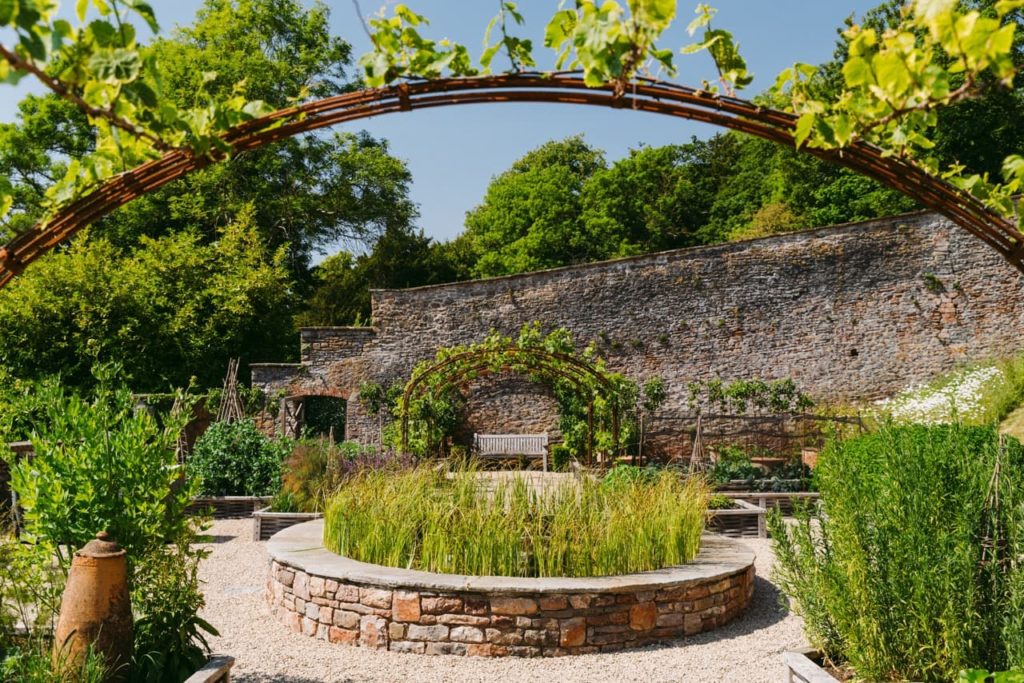Gardener Anna Mortimer Plots The Route Towards Sustainability At Belmont Estate

Contributions From ANNA MORTIMER

Anna Mortimer is the Estate Gardener at Belmont Estate and is responsible for the grounds there. She has received her Level 4 Diploma in Practical Horticulture from RHS Wisley and has other horticultural qualifications from the University of Bristol. She is currently working at Belmont to restore nature and promote biodiversity on the grounds.
Having studied at the University of Bristol Botanic Garden and with RHS Wisley for her Diploma in Practical Horticulture, Anna Mortimer’s route into horticulture might not seem too out of the ordinary.
But it’s the practical experience gained over time as Belmont’s Estate Gardener, and in places like Chiapas (where she lived off-grid in the mountains during a six-month stint) which are a testament to her understanding of plants and nature.
In this interview, Anna shares her admiration for the great plantswoman Beth Chatto, insights into her role at Belmont and some of the ways she is working towards sustainability in her garden practice.
Please note that the imagery used in this article is provided courtesy of Luke MacGregor and Same Ingles.
Can you share a bit about your background and how you got started in gardening?
“I grew up in Devon and spent a lot of time outside as a kid, so I think a love and appreciation of nature has always been there for me because of that,” Anna begins.
“I studied Social Anthropology at university and spent several years developing and coordinating international youth volunteering projects which, although very rewarding, never quite felt like the right choice for me due to the office-based nature of the work.
“After a few years, I took part in a European Voluntary Service (EVS) project and spent 6 months in Chiapas Mexico, helping to set up a centre for environmental education. During this time, I lived off-grid in a tent in the mountains.

“I was working with my hands every day and living in nature. Although very challenging at times, this experience clarified for me that I wanted to do something more practical and to have more time outside.
“After returning to the UK a year later, I did my RHS Level 2 qualification at the University of Bristol Botanic Garden where I also started volunteering one day a week to support my studies.
“At the same time, I took on some part-time gardening and nursery jobs to boost my knowledge and experience until I was ready to be accepted onto the RHS Level 4 Diploma in Practical Horticulture at RHS Wisley.”
Are there any particular principles or philosophies that guide your work in the garden?
“I am a big fan of the ‘Right plant, right place’ philosophy coined by the late plantswoman Beth Chatto,” she says.
“We can learn a lot by looking at how plants grow in the wild and this, alongside an understanding of our soils, can help to create resilient gardens requiring less input and resources from us as gardeners.”
Can you share a little more about your role as Estate Gardener at Belmont Estate?
“As the Estate Gardener at Belmont, I look after the formal gardens and walled kitchen garden as well as the wildflower meadows and orchard,” explains Anna.
“Part of my role is also to develop the gardens and grounds in a way that’s sensitive to the local landscape, encourages biodiversity and provides a space for people to engage with nature in meaningful ways.
“The whole estate is organic so I am also responsible for implementing appropriate monitoring and control measures for potential pests and diseases within the garden.”
How do you incorporate sustainability into your gardening practices?
“Plastic is quite a pervasive issue within the horticultural world and finding alternatives can have mixed results. At the moment I am using recycled plastic pots for propagation which are sturdy enough to be re-useable (I have found some too thin and flimsy) and are also recyclable themselves so they won’t go to landfill at the end of their lives.

“If not using homemade compost, I only use organic, peat-free options and I try to be quite selective around what gets watered in the ever-increasing dry spells that we are experiencing with the changing climate.”
What Advice Do you Have For new gardeners?
“Getting out and actually visiting gardens is enormously valuable,” shares Anna.
“You can find (and fall in love with) new plants, be inspired by design or planting combinations and it will improve your sense of plants and how they’re used to affect how you feel in a space.
“I would say that equally important is going to see how plants grow in the wild as this can be hugely inspiring and educational. You can see where they’re growing, what they’re growing with and how they’re growing in that environment.
“When you see a plant happy in the wild, you know that those are the conditions they like and can then translate that to the garden.”
What’s next for you?
“Belmont has a real focus on restoring nature and promoting biodiversity and the gardens are just a small part of the work that they do towards those goals,” she says.
“On the estate, we have several wildflower areas and from next year we will be starting to survey them so we can better assess their health and progress and manage them more effectively with biodiversity in mind.
“This will then support the creation of a mosaic of different gardened habitats to sit alongside the wilder areas of the landscape that Belmont is restoring.”

